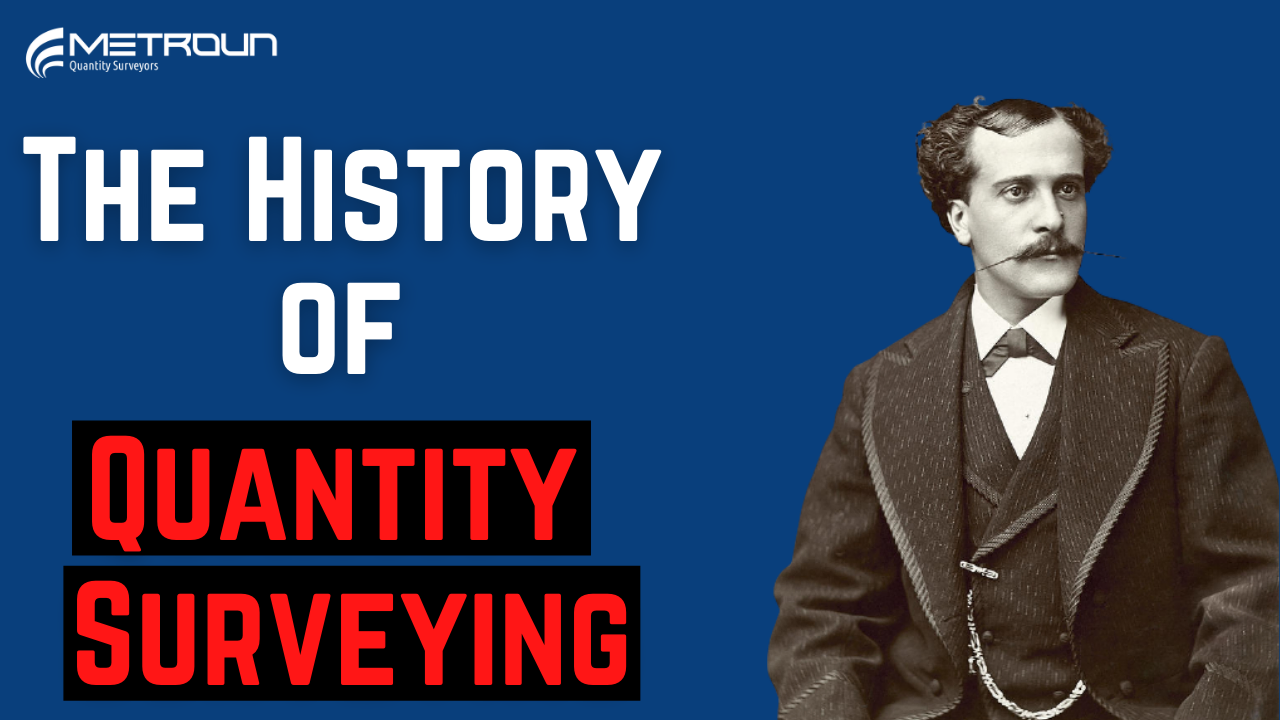
Congratulations, you’ve nearly made it to the end of 2021. Now like us, if you work in the construction industry
Every week on a Wednesday, we provide a new Quantity Surveying or Construction related article that is filled with information. It will always be related to the video that we post on our main YouTube channel.
End of Content.

Congratulations, you’ve nearly made it to the end of 2021. Now like us, if you work in the construction industry

Disputes in construction are inevitable. We can do everything in the book to ensure all details are covered, correct forms, procedures and quality checks are in place. However, there are always going to be disputes that arise. Most of the time, we hope that disputes can be dealt with through proper communication between the parties involved. However, this isn’t always the case, sometimes parties fail to reach an agreement. In this instance an external body may be brought in to aid in finding a resolution. In this article we’ll be looking into what provisions are in place within the NEC3 & NEC4 for dispute

FIDIC is one of the most, if not the most used construction contract around the world, with it being used in the Americas, Europe, Africa & Asia. Sure, there are other standard forms of contract available, but FIDIC is one of the oldest and is still as popular today as it was a century ago. This video is going to take a look at some of the biggest advantages of the FIDICcontract with a view to explaining its popularity. Firstly, the FIDIC contract comes in many forms and variations to cover a huge number of different types of construction project – for a more in-depth view on the different types why not take a look at our ‘FIDIC Contracts Explained’ blog. FIDIC contracts are a whole suite of model contracts which have been developed over more than 70 years by the International Federation of Consulting Engineers (“FIDIC”). Some great benefits of the FIDIC contract are: · That it can be used for all kinds of construction and plant installation projects, such as infrastructure, real estate, high rise buildings, factories, and roads · Can be used by both the Public & Private sectors · The different types of contracts that FIDIC produce can be easily identified by their uniquesystem of attributing a different colour to each one, such as the red book, green book, yellow book, white book, silver book & gold book, etc. · Each type has been purposely written and adapted for a certain type of project so will cover the vital needs and concerns for the parties involved · The specific attributes of a construction project will determine which of the FIDIC base contracts to use such as, the nature and size of the project, the purpose of the contract, and whether the contract is between the client and the contractor or between the contractor and asub-contractor for example · The Contracts are very clear, detailed and easy to understand. This simplicity aids in promoting best practice in the industry therefore, eliminating common issues and concerns. This further helps to reduce the risk of any disputes arising out of the projects where a FIDIC contract is used · The extreme detail of the contracts covers issues which may not yet be covered by the law & regulations of a particular country. Again, this helps to eliminate any potential disputes · Last but not least, FIDIC has been written to be fair to both parties within a construction contract and make a very conscious effort to not favour one over the other. Consequently, both the client and contractor, or contractor and sub-contractor feel protected and safe entering into a FIDIC contract together As you can see, FIDIC certainly provide a lot of benefits so it’s easy to understand why it’s many peoples first choice when deciding on a construction contract. However, there are otheroptions of construction contracts which provide similar and different benefits to a project, which we will cover in future videos and blog posts.

It’s easy for us to get comfortable once we’ve got the job we want or graduated from university. It’s almost like those achievements will carry us through our careers. However this often isn’t the case. As you progress your career in Quantity Surveying, you’ll need to demonstrate your value to employers in other areas. They’ll want to know you’re competent enough to handle the next level of responsibility. That’s why we’ve made this article. We’re going to give you 3 steps to help you accelerate your career in Quantity Surveying. Step 1 Chartership – According to RICS, chartered professionals earn 38% more than their fellow non-chartered counterparts. However, the reason for this increase isn’t just because of the title. Embarking on a chartership forces you to learn, take on more responsibility and articulate your knowledge, so you can speak with confidence about Quantity Surveying and the industry as a whole. In other words, it gives you the ability to hold your ground and offer coherent advice – skills which will become vital as you progress in your career. There are multiple charterships and routes to choose from, depending on the industry you’re working in,qualifications and years of experience. Step 2 Learning – This is something step 1 will help you achieve. However, your learning should not just be limited to meeting your chartership requirements. It’s something which never stops. Learning benefits both you and your employer. That’s why many companies encourage employees to enrol on courses – it makes you a better employee. In other words, learning doesn’t just need to be something you do outside of work. It can be integrated into your working week. Speak to your line manager or someone more experienced in your organisation about what your company can offer in terms of learning. Some larger companies even have a learning and development department catered towards this exact thing. There are other things you can do as well such as, online courses, YouTube videos like this one, or even subscribing to monthly journals from professional bodies like CICES. Step 3 Volunteer – It’s easy when at work to just get lost in your daily tasks. You get comfortable and complacent. However, you always want to be pushing yourself just beyond your capabilities. This is the place where you’re going to see the most growth as an individual.If you find yourself not being challenged in your daily work, then speak to your line manager and ask if you can take on more responsibility. You’ll often find they’ll be happy to hear this, it to shows them you’re determined, and they may actually need some extra support. You’ll notice a pattern in each of these three steps. They all encourage you to learn and take on more responsibility. Together, they can act as three strong driving forces which your futureself will thank you for acting on. Why not watch our video on this subject?

If you’re a Quantity Surveyor, you’ve most likely estimated or come across a provisional sum in a price. If you

If you’ve ever thought about venturing into the world of Quantity Surveying, you might wonderwhat you need to be good at to succeed. Good Quantity Surveyors are extremely sought after within the wonderful world of construction. The sad truth is like any profession, you can get good and bad QS’s. So you maybe wondering what skills are needed to succeed if you want to fall within the good QS’s column rather than the bad… and with it demand the healthier salaries. Well, you’re in luck, this blog is going to take a look at the top 5 skills that we feel Quantity Surveyors need in order to do the role professionally and to a high standard. 1. Numeracy. Unfortunately there is no getting away from it. Being good at Maths is a great skill to have for Quantity surveyors. General day to day tasks include calculating the cost of a project to make sure that it’s affordable before work starts by building Bill of Quantities for example, and then ensuring thatthe project is running to the agreed budget by managing the actual costs throughout construction. Other tasks will include forecasting and calculating potential efficiencies on projects so if pages of costs, figures and spreadsheets make you feel slightly uneasy, QuantitySurveying may not be the best fit! 2. Good working knowledge of Excel and specialist software packages. Utilising available software speeds up the general day to day tasks of a QS and helps with processing vast amounts of data and accuracy with pricing and cost management. Deadlines can at times be very tight so the ability to produce reports summarising the cost data of a project or multiple projects quickly can really help you stand out from the crowd. 3. Excellent relationship-building, interpersonal & social skills. You may have heard this before but ‘Price isn’t always the deciding factor’. Like in a lot of industries, the relationships that we form with clients and other stakeholders can sometimes lead to better performance through trust and quality, ensuring clients keep coming back. Understanding your clients’ wants and needs will put you in the best possible position to help and advise them, putting you ahead of competitors. A positive experience is super important when a client is making a decision, especially on long construction projects where communication and collaboration is key. 4. The ability to negotiate. This is something that will always set apart a good quantity surveyor from a great quantity surveyor. Negotiation can and should be used to help save the company or the client time, money or materials. If you are well informed and an expert on the current state of your industry, negotiation can become far easier and can help you to get the best deals. Negotiation techniques are something that we feel must be built over time and comes with experience, unfortunately it’s not something you can become an expert in overnight! 5. Attention to detail and patience. Having a great eye for detail, organised and methodical can be invaluable skills for a Quantity Surveyor. A lot of what QS’s do must adhere to legal contracts and is to do with money so it can often be scrutinised to the very finest details. You need to make sure nothing is missed that can later cost your employer or client money and time. Be patient when scrolling through documents and contracts as small details could be the difference between a successful and unsuccessful project. Pay attention to the project as a whole and always try to think ahead to capture potential risks as soon (if not before) they arise.

Interim payments are vital for construction projects which span over a long duration, as it enables on-going financing for the contractor. However, interim payments are not just a convenience for the contractor, it’s also a requirement under UK law. In this article we’re going to look at what the law says and what process needs to be followed. So when are interim payments actually required? Let’s look at what The Housing Grants, Construction and Regeneration (HGCR) Act

Let’s be honest, this is not a thought that goes through many people’s minds. We’re pretty sure nobody is kept

Whether you are looking at getting into construction or already work within the industry, you may have heard of and perhaps come across both Quantity Surveyors and Building Surveyorsbut many of you may wonder if there are differences in the roles and responsibilities of the 2 professions and if so, what exactly the differences are. Well, if you want these questions answered to make a career path decision or simply gain a better understanding of the 2, you are in the right place so keep reading! To put it simply, building surveyors focus more on the technical side of both the property and construction sectors. Meanwhile, quantity surveyors deal with the financial side of the construction industry, making sure every project is cost-effective. Both are covered and can be a member of RICS and can be invaluable team members on a construction project. Lets take a deeper look… We are going to with some of the most common responsibilities of Building Surveyors, these include: Surveying properties, identifying structural faults, and providing recommendations for essential repairs Assessing damage (following a fire or flood) for insurance purposes Establishing who is responsible for building repair costs Advising clients on issues such as property boundary disputes Inspecting properties to make sure that they meet building regulations, and fire safety and accessibility standards Dealing with planning applications and with improvement or conservation grants The main roles and responsibilities of Quantity Surveyors on the other hand more commonly include: Studying drawings and specifications about a new building, usually provided by architects or engineers Must use their strong financial, analytical, interpretative skills to ensure the smooth running of projects Calculating the materials, time, and labour costs of a project Preparing, negotiating, and analysing costs for project contracts Using their good interpersonal skills and abilities to organise teams Advising on a range of legal and contractual issues Valuing completed work and arranging for payments to be made or preparing applications for payment to be submitted to clients. So, as you can see from the roles and responsibilities, a typical day at the office is likely to look pretty different for building surveyors and quantity surveyors. A great way to look at it is the information gathered by building surveyors at construction siteswill be used to prepare contract and tender documentation and advise the client before construction commences. In turn, these documents will then be given to the quantity surveyor,so they can use the information to prepare bills of quantities and take the project further through pricing and cost management throughout. Quantity Surveyors are also extremely likely to be involved after projects during the final accounting stage.